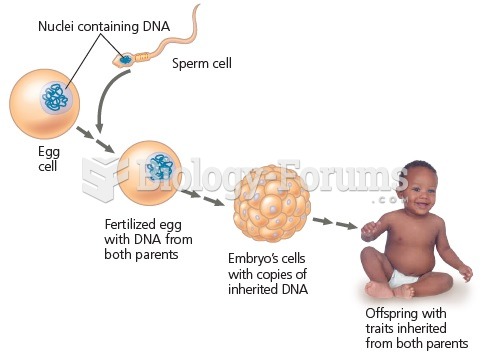|
|
|
Most childhood vaccines are 90–99% effective in preventing disease. Side effects are rarely serious.
Medication errors are three times higher among children and infants than with adults.
Pubic lice (crabs) are usually spread through sexual contact. You cannot catch them by using a public toilet.
Though newer “smart” infusion pumps are increasingly becoming more sophisticated, they cannot prevent all programming and administration errors. Health care professionals that use smart infusion pumps must still practice the rights of medication administration and have other professionals double-check all high-risk infusions.
Symptoms of kidney problems include a loss of appetite, back pain (which may be sudden and intense), chills, abdominal pain, fluid retention, nausea, the urge to urinate, vomiting, and fever.







